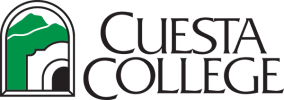
Program Summary
CHILD AND ADOLESCENT DEVELOPMENT - Associate in Arts for Transfer
The Child and Adolescent Development Associate in Arts for Transfer degree will prepare students with the strong foundation necessary for pursuing studies at the university level in education, child development, child welfare, or other related programs focusing on children and their families from infancy through adolescence. Students completing this interdisciplinary degree learn the processes of change and growth that characterize human development from conception to age 25, preparing them to pursue employment in the human services field. The coursework is designed to meet the needs of students planning to transfer to a CSU, majoring in Child Development, Human Development, Child and Adolescent Development, and Liberal Studies (Child Development). Students completing a Bachelor of Arts degree in this major typically choose careers in education, social services, counseling, and child/youth/family advocacy, or in the field of health.
The Cuesta College AA-T degree in Child and Adolescent Development requires:
(1) Completion of 60 semester units or 90 quarter units that are eligible for transfer to the California State University, including both of the following:
(A) California General Education Transfer Curriculum (Cal-GETC).
(B) A minimum of 18 semester units or 27 quarter units in a major or area of emphasis, as determined by the community college district.
(2) Obtainment of a minimum grade point average of 2.0.
(3) Earn a 'C' or better grade in all courses required for the major area of emphasis. A "P" (Pass) grade is an acceptable grade for courses in the major